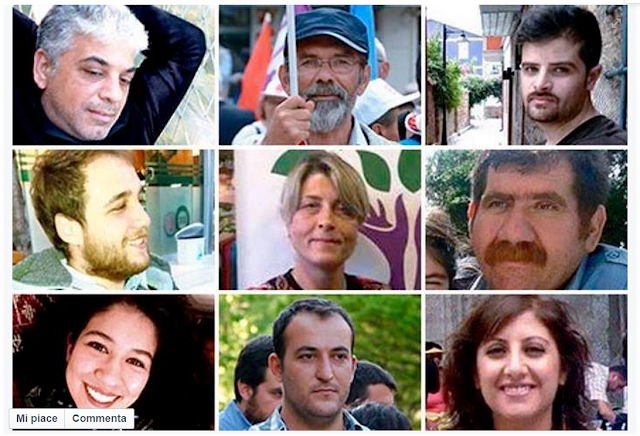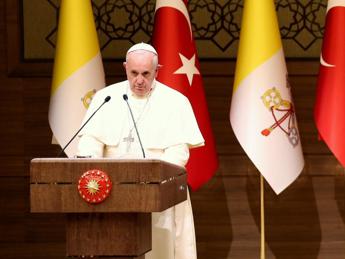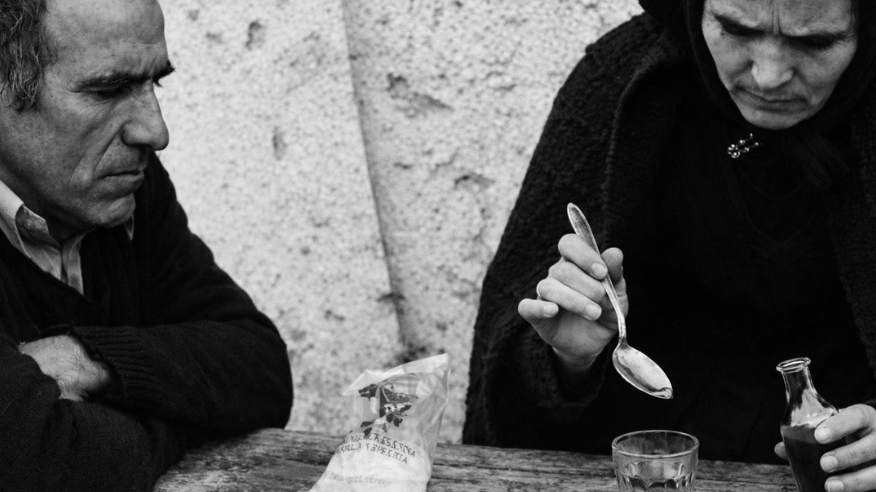Ankara, 10 ottobre 2015.
La fine. Sono crollate sabato scorso, davanti ai corpi dilaniati d'un pacifico corteo, le speranze, o piuttosto le illusioni, sul futuro democratico della Turchia di Recep Tayyip Erdogan.
Qualcuno parla, probabilmente non a torto, di strategia della tensione, ben nota soprattutto ai miei coetanei (il corteo era formato da molti curdi, dei quali Erdogan è acerrimo nemico). S'accusa il solito Is/Daesh, anche in tal caso con fondatissime ragioni. Ma a me bastano quei centotrenta (per il momento) fatti a pezzi da una bomba infame: il più giovane aveva nove anni, la più anziana ottanta. Erano donne - molte -, ragazze, studentesse, lavoratrici, professori di liceo, casalinghe e muratori, laici e credenti. Era un popolo che manifestava, come tanti di noi, diverso da noi. Quanto l'ho respirato, in questi giorni, l'odore della libertà, il privilegio di poter vestire come mi pare, di contestare, sbagliare, pregare e bestemmiare, cantare e scrivere, piangere o ridere. E quanto mi sono resa conto della sua fragilità. Anche noi italiani siamo liberi da poco tempo, ma abbastanza smemorati da non accorgercene più.
Le responsabilità morali dell'aspirante sultano del 2000 restano intatte. A partire dall'acquiescenza, o tolleranza - se vogliamo ricorrere a un eufemismo - verso il gruppo Stato islamico, per cui adesso muoverebbe al riso, se non fosse tragica, la sua adesione al fronte anti-"califfato", che del resto finora gli è servita non per combattere quest'ultimo ma gli odiati curdi e le truppe di Assad. Ma, se Sparta piange, Atene non ride, e la vergogna per l'Erdogan "amico" non è superiore a quella nei confronti dell'Arabia Saudita, altro paese notoriamente democratico, aperto, civile, che si appresta a "giustiziare" (e mai vocabolo risuona oggi più sconcio e grottesco) il ventunenne Alì an-Nimr tramite decapitazione, crocifissione e imputridimento del cadavere fino a completa decomposizione. Affinché serva da monito. Il crimine commesso dal giovane, diciassettenne all'epoca dei fatti, non è diverso da quello del corteo di sabato. Aveva osato protestare.
Un altro suo connazionale, Raif Badawi, di anni ne ha 31 e per adesso ha scampato la pena capitale ma non un centinaio di frustate e il soggiorno in un bagno di pena in condizioni che non vogliamo immaginare. E sempre per la stessa colpa: tenere un blog in cui poter esprimere il proprio pensiero.
Lo sdegno occidentale verso la loro sorte è stato modestissimo, e si capisce: l'Arabia Saudita è un partner commerciale troppo importante e non ci si può giocare un'alleanza strategica per un paio di futili ragazzi. Così altri paesi in cui i diritti umani sono costantemente e violentemente negati, come Cina o Corea del Nord. Così la Turchia. Tutti assai avanzati dal punto di vista tecnologico ed economico ma, parafrasando papa Francesco, l'umanizzazione non si misura da questi soli aspetti. Sviluppo non significa progresso, avvertiva, ancor prima, Pasolini. Grave, fatale errore, scambiare il mezzo per il fine. D'altronde, questi sono i cardini dell'ideologia liberista; ma non intendo qui addentrarmi in analisi politologiche, non me ne attribuisco la competenza. Faccio piuttosto un passo, un lungo passo indietro. Fino al 2002.
Bresso, dicembre. Ultimo mese di vita d'un glorioso giornalino locale, il nostro. Si chiamava "L'Urlo", chiudeva i battenti dopo undici indimenticabili anni. Io e i miei amici gli avevamo dedicato tempo (gratuito, si capisce), cura e passione. E proprio in quello scorcio d'inverno la Turchia conosceva la folgorante vittoria di Erdogan e del suo Partito per la Giustizia e lo Sviluppo. Vittoria alquanto temuta da diversi osservatori occidentali per il dichiarato carattere islamico, anzi, islamista del suo leader. La questione, tuttavia, era mal posta. Su quello sparuto giornalino autogestito la sottoscritta firmò, dietro lo pseudonimo che allora amavo adottare, alcune riflessioni su tale trionfo e sull'atteggiamento, già burbanzoso, del leader turco. Pur con la prudenza che mi contraddistingue subodorai la pericolosità del soggetto da un paio di frasi. Queste: "La donna dev'essere libera d'indossare il velo. La Costituzione lo vieta? Risolveremo il problema". Promessa scrupolosamente mantenuta, e si trattasse solo del velo: l'atteggiamento di Erdogan verso le donne nel corso degli anni avrebbe assunto caratteri vieppiù paternalistici, autoritari, oppressivi, fino alle irriferibili, recenti scempiaggini davanti al fenomeno dei femminicidi e degli stupri, che sotto il suo governo sono aumentati del 400%. Naturalmente ai tempi nessuno badò a un tema considerato assolutamente marginale; questioni muliebri, ça va sans dire. Al massimo si demonizzò il velo con argomentazioni fruste, generiche e permeate di razzismo, come l'equazione, non sempre vera, velo=schiavitù (e un corpo nudo sbattuto su un manifesto pubblicitario simboleggia invece emancipazione? Era emancipazione lo strip-tease delle Femen?).
Ma cosa c'entra questo flashback con l'orribile strage di due giorni fa? C'entra, c'entra eccome. Perché fin quando la donna è considerata un problema, fin quando la si tiene in uno stato di soggezione, magari sancito da leggi, in nome d'una imprecisata "natura" o, peggio, credo religioso, nessun reale cammino democratico comincerà davvero. Mai si potrà attuare compiutamente quella giustizia, pace e libertà (concetti così ampi, all'apparenza imprendibili, ma in verità concreti, Dio sa quanto concreti) invocata dai manifestanti ad Ankara. L'hanno ben compreso i curdi e le curde che, pur divisi all'interno, si relazionano fra loro su un piano del tutto paritario.
Prima che storico, è matematico: nessuna delle nazioni summenzionate, come altre in cui i diritti delle donne sono incerti o addirittura negati, è una democrazia; né potrà diventarlo a queste condizioni. E, se soffrono le donne, ne pagano lo scotto pure gli uomini. Gli anziani. I bambini. Il popolo tutto. Anche in tal caso, basterà una rapida verifica per sincerarsene.
Ho letto su alcuni social network l'invito di alcuni pii, a pregare "per la pace in Medio Oriente". Ma la Turchia non è "Medio Oriente". Non è nemmeno Europa, pur restando in lista d'attesa da oltre dieci anni (io ne ero un'entusiasta sostenitrice, ma, con Erdogan al potere, l'assunto è impossibile). La Turchia oggi, è "quasi" Oriente, "quasi" Europa o piuttosto, semplicemente, non è. E non sarà forse per diversi anni, non è affatto scontato che alle prossime elezioni Erdogan venga sconfitto. Anzi, potrebbe trionfare ancora, molti fattori, non ultima la paura, giocano a suo favore. Colpa del suo islamismo o dell'Islam come tale? Non è questo, lo ripeto, il vero nodo da sciogliere. Benché consapevole di quanto nefasto sia l'intreccio fra religione - qualsiasi religione - e politica, e dei grovigli interni - fondamentalismo, interpretazione del testo sacro, risentimento per il passato colonialista, commistione fra nazionalismo, identità e credo, frustrazioni varie ecc. - continuo a ritenere realizzabile, a molte e dolorose condizioni, una democrazia anche da quelle parti, nel modo specifico e originale che sapranno esprimere. Ma anche in questo caso, anche per una nuova ermeneutica dell'Islam, l'apporto del genio femminile è ineludibile; finché continua a latitare, o a essere avvilito, aspettiamoci altre Ankara, altre bombe, altre guerre; altra, primordiale, inciviltà.




